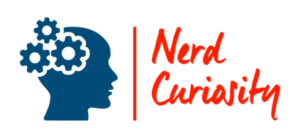Navigating the dynamic realm of product management often leads to a pressing question that sprouts in the minds of many aspiring professionals: does one need a formal degree to become a product manager? While the path to product management can be as varied as the products themselves, the curiosity around educational prerequisites persists. In exploring this terrain, you might find yourself questioning the value of a degree versus the richness of hands-on experience.

Product managers do not necessarily require a degree to break into the field. Empirical experiences and skills often take precedence; however, possessing some knowledge in related areas can be a boon, particularly for technical roles or when managing products with a strong AI component.
Further in this article, expect to unravel the layers of product management education and experiential learning. You’ll learn about the different routes one can take to develop the arsenal of skills needed for the job—be it through formal education, certifications, or real-world experience—and how these paths can pivot a career towards successful product management. The forthcoming sections will guide you through the roles, responsibilities, and career progression opportunities, shaping a well-rounded view of what it takes to excel as a product manager.
Educational Requirements for Product Managers

Before you dive into your product management journey, it’s vital to understand the role that education plays in your career development. From formal degrees to alternative learning methods, there’s a variety of ways you can prepare for this dynamic field.
Relevance of Formal Education
A bachelor’s degree in business, marketing, or a related field is often the cornerstone for a career in product management. Courses in these programs lay the groundwork in areas like strategic planning and market analysis. Meanwhile, a master’s degree can offer a deeper dive into these subjects. An MBA program specifically, provides you with enhanced leadership skills and an intricate understanding of business operations. It is important to look for programs that offer product management courses to ensure that your education aligns with your career goals.
The value of an MBA can be especially pronounced, with some companies preferring candidates who have this advanced qualification. Product Management bootcamps and certifications serve as a bridge for those who seek to sharpen their skills rapidly. These certifications or bootcamp experiences can complement your existing knowledge and make you more attractive to potential employers.
Alternative Educational Pathways
For a career in product management, traditional pathways aren’t your only option. Many successful product managers come from various backgrounds and use alternative learning resources to break into the field. Online courses, for instance, offer flexibility and focused learning on specific aspects of product management.
A practical approach can also be found in attending workshops and seminars tailored to product development and agile methodologies. Certification courses, such as a Product School Product Management Certification, teach contemporary skills that are immediately applicable in the workplace. Earning a certification like this signifies a dedication to the profession and a practical grasp of necessary competencies.
Skills and Competencies in Product Management

The right blend of hard skills and soft skills forms the bedrock of effective product management. Dive into the crucial abilities you’ll need to excel in this dynamic field.
Core Management Skills
Core management skills in product management encompass your ability to organize, plan, and execute projects effectively. You will find that time management and the capacity to prioritize are indispensable. Additionally, incorporating the right measure of problem-solving skills can make a meaningful difference in the outcome of your projects.
Technical and Business Acumen
Having a robust technical skillset is beneficial, as it enables you to understand the intricacies of the product you’re managing. This technical prowess, paired with keen business acumen, helps you to analyze market trends and strategic thinking allows for innovative solutions. Embrace a learning mindset; continually updating your knowledge is vital.
Interpersonal and Communication Skills
Communication skills are your bridge to successful collaboration with both your team and stakeholders. Your ability to articulate a vision clearly and empathy for the user experience is pivotal, as these elements strengthen team alignment and ensure that products meet customer needs.
Leadership and Strategic Thinking
As a product manager, your leadership skills will often define your team’s morale and productivity levels. A visionary perspective, combined with the ability to inspire is key. Strategic thinking aids in navigating the product through competitive and complex markets, ensuring that it not only survives but thrives.
The Role of Experience in Product Management

In product management, your hands-on experience often speaks louder than your formal education. Career progression can be significantly influenced by your practical work and the industry knowledge you’ve accumulated.
Building a Product Management Career
Your journey into product management might start at an entry-level position like an associate product manager. Here, you get to learn the foundational tasks of the role, including data analysis and participating in product design. As you progress, the titles and responsibilities evolve. You could move on to become a senior product manager, and eventually, a specialist such as a technical product manager or a growth product manager, depending on where your interests lie.
Experience is vital in climbing this ladder, as each step builds on the practical knowledge cultivated in the preceding one. Crafting a robust portfolio of successful product launches can propel you forward in your career path. It’s a testament to your capability to shepherd a product from conception to market success. The job outlook for this career is positive, reflecting the increasing importance of the role across various industries.
Industry-Specific Experience
The nature of your experience can significantly impact your career in product management. For example, overseeing product development in a tech company imparts a deeper understanding of customer software needs, which is different from consumer goods. Industry-specific experience molds your strategic vision and allows you to make more informed decisions, enabling products to better satisfy market demands and trends.
Your role may evolve as you acquire specialized skills. For instance, a background in software development is invaluable if you aim to be a technical product manager, where you must intimately understand the technical aspects that go into building a product. Conversely, a knack for understanding market growth opportunities is essential if you aim to become a growth product manager. A broader experience base can also allow for greater mobility within the industry, enhancing your job outlook.
Navigating the Product Management Landscape

In product management, your success hinges on a deep comprehension of the market and cultivating strategies that resonate with customer needs. You’ll find that rooted in market analysis and strategic planning lie the tools for guiding your product’s journey.
Understanding the Market and Customer Needs
To secure your product’s place in a competitive market, you must engage in thorough market research. This process encompasses both quantitative data like user demographics and qualitative insights gleaned from customer interviews. Recognizing user needs isn’t a one-time event; it’s an ongoing endeavor that involves systematically collecting feedback and adapting to emerging trends. A proactive approach to consumer research ensures that you are in tune with shifts in preferences and behaviors, allowing you to adjust the product vision and objectives accordingly.
- Conduct Surveys & Interviews: Gather direct input to comprehend the specific requirements and pain points of your target audience.
- Analyze Competitors: Understand their offerings and identify gaps in the market.
- Monitor Trends: Stay updated with industry trends to anticipate future consumer demands.
Developing Effective Product Strategies
Once you have wrapped your arms around the market’s pulse, turning that knowledge into an actionable product strategy is your next milestone. Start by articulating a compelling product vision; this will serve as the north star for your product’s road map. Your strategy should thread together the market needs with your product’s unique value, distinguishing it from the competition. It’s about finding that sweet spot where user desires align with what you’re offering—an alignment you’ll refine through continual iteration based on user feedback and research.
- Define Goals & Objectives: Establish clear, measurable objectives that align with the broader product vision.
- Strategize Roadmaps: Chart out the steps to take your product from concept to launch—and beyond.
- Leverage Agile Methodologies: Use agile practices to iterate quickly and respond to market changes with flexibility.
Advancing in a Product Management Career

Embarking on a career in product management entails a continuous journey of professional development and strategic positioning. Your advancement hinges on pivotal connections and your readiness to assume more complex roles.
Networking and Professional Growth
Networking is a key driver for your professional ascent. Forge relationships with designers, engineers, and marketers—the central cast of the product development stage. Regularly attend industry events and join organizations that align with your ambitions, as these spaces provide fertile ground for connections that could lead to new opportunities. Don’t just limit yourself; broaden your network online, incorporate diverse teams, and maintain a presence where leadership skills shine.
By nurturing these professional relationships, you create a support structure. This web of contacts becomes invaluable as you seek mentorship or peer advice. They can become your pathway to internal transfers or introductions to companies looking to fill higher roles such as Vice President of Product or Chief Product Officer.
Transitioning into Higher Roles
Progressing to higher roles requires more than just experience—it demands an orchestration of transferable skills and a strategic approach to career movement. Becoming the CEO of a product isn’t about tenure; it’s about impact. Boldly volunteer for cross-functional projects within your organization to showcase your versatility. These initiatives expose you to different aspects of the business and signal your readiness to take on more.
Salary negotiations, too, play a role as you move up. Your compensation should reflect your added responsibilities and the value you bring. Research what others in elevated positions are earning, and come prepared to discussions with a clear understanding of your worth.
Conclusion

Your journey into product management may not require a traditional degree. Surveys indicate that certifications and continuing education hold significant value in this field. Many product managers have certifications that complement their undergraduate degrees.
By engaging with professional product management certification programs, you can acquire cutting-edge skills in product strategy, iterative product development, and agile practices. Should you choose to further your education, various courses are available. They range from comprehensive college degrees to condensed, career-accelerating certifications.
Interpersonal skills, like attention to detail and strong leadership qualities, are equally important. These soft skills ensure you thrive in an environment that demands collaboration and team-building. So, while formal education can give you a theoretical foundation, your ability to adapt, innovate, and lead is just as critical.
Ultimately, whether a degree is necessary depends on your unique situation. Evaluate what skills you already possess. Consider what additional expertise the industry may require. Then, decide on a learning path that best suits your career goals. Remember, your passion for product development and your willingness to continuously learn will often speak louder than just the credentials you hold.
